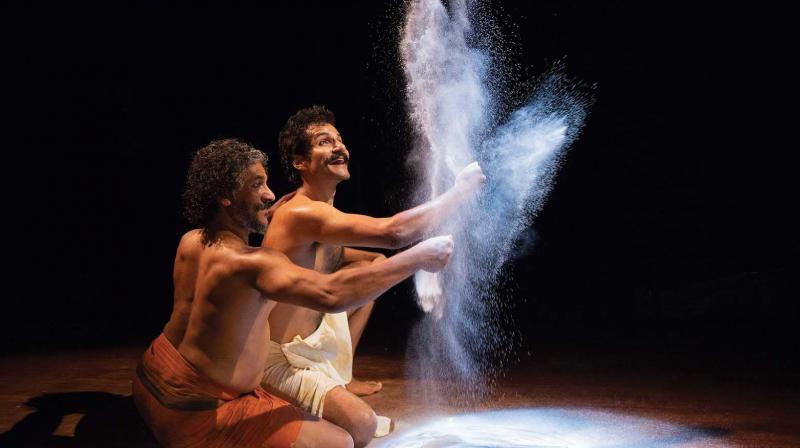Heroic in epic proportions
In this play, the content drives each of the elements from the forms, says Nimmy.

This play not only has a great storyline, dialogues and sets but also a lot of physical movement. Written and directed by Nimmy Raphel, Bali tells the tale of the unsung heroes of the Ramayana. On what inspired her to come up with this play, she shares, “At Adishakti, we have had a long engagement with the Ramayana which made us familiar with the stories. At some point, I was fascinated with the idea of notions of how we perceive things. It could include how you deal with right and wrong in one’s daily life, also the concept of have and have not.” As a performer, Nimmy thought the best way to talk about the subject would be through the sequence of Bali’s death. “One can look at the sequence from different perspectives. You can play with points of view be it Ram, Sugrive, Angada and also Ravana. It sort of pushes you to look at the incident from different angles. Therefore, it gives you an idea about how you would want to position yourself for that incident,” says Nimmy.
She doesn’t feel that the themes spoken about in this play are far removed from the way we live now, “Even though the Ramayana happened many centuries ago, time and characters have changed but the incidents and emotions are not very different. All that matters is how you co-relate to these incidents.” Apart from dialogues and sets, this play used various performance forms like Kalaripayattu, Gusti and many other. In Adishakti, the engagement in any form, is not only to transform the form on stage but it should help bring the visuals alive on stage. “There is no direct translation of any form. These forms are used to make the performer agile so that the director’s vision comes true on stage. In this play, the content drives each of the elements from the forms,” she shares. The play has been part of many festivals like the Bombay Literature Festival, Esplanade Festival, Singapore and also the Mysore National Theatre Festival.
Vinay Kumar plays the character of Bali, one of the lead characters, and he elaborates, “The conflict between Bali and Sugrive can be summed up in how we look at crisis in contemporary times. In every conflict, you can see the Bali-Sugrive story behind it. The conflicts happens when there are two perspectives, both of which are right when you look at it from their points of view. These conflicts can never be resolved as each person will think his view is the right one.” Ashiqa Salvan who plays Tara, the timid wife of Bali, adds, “Tara is a marginalised character from the Ramayana who is the wife of Bali, the king of Kishkinda. However in this play Bali, Tara is portrayed as a strong-willed character with a voice and a perspective of her own. She confronts Ram with pertinent questions about why he killed Bali? And why (he did it) in the way he did.”
— The play will be staged on 23 and 24 February at Ranga Shankara.

